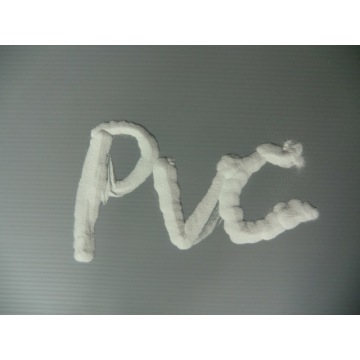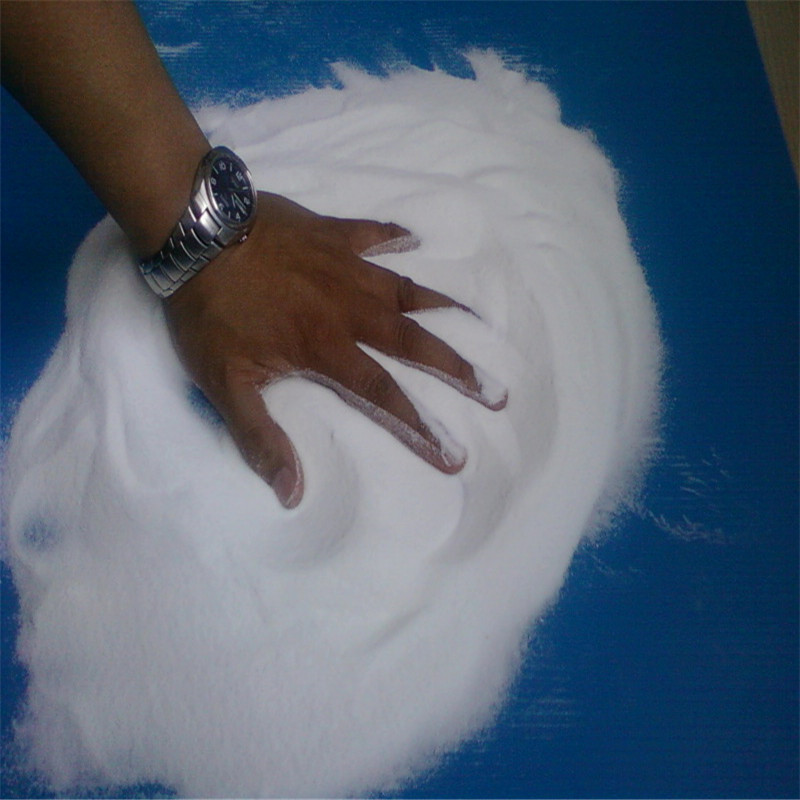
Privacy statement: Your privacy is very important to Us. Our company promises not to disclose your personal information to any external company with out your explicit permission.
![]() February 27, 2024
February 27, 2024


Polyvinyl chloride (PVC) is flame retardant and can burn on flames, extinguishing immediately after leaving the flame; During combustion, the flame appears yellow with a green bottom and emits white smoke; When burning, the plastic becomes soft and emits a pungent sour taste. Under ultraviolet light, rigid polyvinyl chloride PVC produces light blue or purple white fluorescence, while soft polyvinyl chloride PVC produces blue white fluorescence. PVC is generally rarely modified with flame retardants, and calcium zinc stabilizers are the main additives added. The six major characteristics and uses of polyvinyl chloride (PVC) are as follows.
1、 Main features
1. Forming and processing characteristics
Polyvinyl chloride (PVC) can be processed using various molding methods, including rolling, extrusion, injection, blow molding, etc. Hard product processing often involves adding processing aids (1-5 parts) or impact modifiers (8-15 parts) to improve processing performance and increase impact strength; Plasticizers and other components need to be added during the processing of soft products.
(1) First, mix Pvc Resin with plasticizers, stabilizers, colorants, and other additives in a certain proportion according to the formula, and then plasticize the mixture. The kneading time is 0.5-1.5 hours, and the temperature is 125-150 ℃. The plasticized plastic can be directly used for molding and processing, or the plasticized material can be pulled into pieces or cut into pellets. Dry mixing technology is the process of vigorously stirring dry Polyvinyl Chloride Resin and absorbing plasticizers at lower temperatures to obtain a dry, completely dispersed powder mixture. The advantage is that the Resin is not easily decomposed when kneaded at lower temperatures.
(2) The rolling temperature is usually 145~170 ℃, and the thickness of the processed film is 0.05~1.00mm. The technological improvement for large-scale production of soft films is to cold stretch the film several times in both longitudinal and transverse directions on a stretching equipment after rolling, which can improve the transparency and strength of the film and produce a wide width film.
(3) Lamination involves laminating thin sheets with a thickness of approximately 0.5mm, which are then laminated together. The process conditions are: hot plate temperature 140-180 ℃, pressure 2-10MPa, time 0.5-1h, and the process conditions vary with the thickness of the plate.
(4) It is better to use loose PVC Resin for extrusion molding. The extrusion of hard products involves heating the kneaded mixture to 120-180 ℃, extruding it into pellets under pressure, and then heating and extruding it into a certain shape of the product; The extrusion temperature of soft products should be appropriately reduced as the content of plasticizers increases. The heating section temperature starts from 130 ℃ and reaches about 170-180 ℃ at the mold mouth. The screw speed is 10-70r/min, the length to diameter ratio of the screw is (15:1)~(24:1), and the compression ratio is (2:1)~(3:1). Soft products can use single screw extruders, while hard products often use double screw (or multi screw) extruders to improve mixing efficiency.
(5) Injecting rigid polyvinyl chloride PVC products is difficult, so loose PVC resin is often chosen. The pre-treatment temperature is 110 ℃± 10 ℃, and the time is 1-1.5 hours. Injection molding temperature: 149-213 ℃ for hard products; The temperature range for soft products is 160~196 ℃. Injection molding pressure: 69-276MPa for hard products; Soft products ranging from 55 to 172MPa.
PVC has the characteristics of good chemical resistance, flame retardancy, wear resistance, noise reduction, shock absorption, excellent electrical insulation performance, good mechanical properties, wide monomer source, and low product cost. And multiple molding methods can be used for processing. The main drawbacks are poor thermal stability, varying degrees of degradation caused by heating, and low softening temperature. Soft products also have the disadvantage of Plasticizer migration, so they can only be used below 80 ℃.
2. Mechanical properties
Polyvinyl chloride (PVC) has high mechanical strength, and its wear resistance at room temperature exceeds that of vulcanized rubber. Its hardness and rigidity are superior to those of polyethylene.
3. Electrical performance
The electrical insulation performance of polyvinyl chloride (PVC) is good, and its performance depends on the type and quantity of various additives in the formula, as well as the heating conditions. For example, when PVC decomposes due to heating, the presence of chloride ions reduces the electrical insulation performance.
4. Thermal performance
The brittleness temperature of rigid polyvinyl chloride PVC is below -50 ℃, and it becomes soft at 75-80 ℃. The glass transition temperature varies with the polymerization temperature. It is generally believed that the glass transition temperature is between 80-85 ℃. PVC will degrade above 150 ℃ in the air and release HC1. If exposed to 100 ℃ for a long time, it will also degrade without adding alkaline stabilizers; If it exceeds 180 ℃, it rapidly degrades, and PVC molecules contain a large amount of chlorine, making it difficult to ignite. However, the addition of plasticizers will reduce the flame retardancy.
5. Aging resistance
Polyvinyl chloride (PVC) will degrade under the action of light, and the process is similar to thermal degradation. The most sensitive wavelength for PVC is 270-310nm. Resistant to non-polar solvents such as petroleum and mineral oils. Products without plasticizers are resistant to most inorganic acids and bases, and are quite stable to salts. They can swell or dissolve in certain ketones, ethers, esters, and chlorinated hydrocarbons. Cyclohexanone and tetrahydrofuran are good solvents for them and are insoluble in water, alcohol, and gasoline. Usually, the addition of plasticizers makes PVC products susceptible to solvent corrosion and bacterial corrosion in hot and humid environments, so it is necessary to add mold inhibitors.
6. Physical performance
The water absorption of PVC is less than 0.5%, and its breathability and moisture permeability are very low.
PVC plastic is a multi-component material. Plasticizers, stabilizers, and other additives can be added according to different uses. With different compositions, PVC products can exhibit different physical and mechanical properties. For example, with or without (or with less) plasticizers, they can be classified as soft or hard products.
2、 Purpose
Polyvinyl chloride (PVC) has a wide range of applications, involving various fields of the national economy. Hard polyvinyl chloride (PVC) is mainly used in the construction, electrical, and packaging industries. Pipes account for more than 50% of hard products and are commonly used for water pipelines and corrosion-resistant pipelines in the chemical industry. There are also hard boards, bars, storage tanks, doors and windows, etc. Soft polyvinyl chloride (PVC) is mainly used for film, synthetic leather, and wire and cable wrapping. Other materials include sheets, hoses, shoe materials, various soft pipes, plates, and injection molded, extruded, blow molded products
The above is the Six Characteristics and Applications of Polyvinyl Chloride (PVC) we have listed for you. You can submit the following form to obtain more industry information we provide for you.
You can visit our website or contact us, and we will provide the latest consultation and solutions
Send Inquiry
Most Popular
lastest New
Send Inquiry

Privacy statement: Your privacy is very important to Us. Our company promises not to disclose your personal information to any external company with out your explicit permission.

Fill in more information so that we can get in touch with you faster
Privacy statement: Your privacy is very important to Us. Our company promises not to disclose your personal information to any external company with out your explicit permission.